Notes from the Rehearsal Studio: Learning the “Quartet for the End of Time”
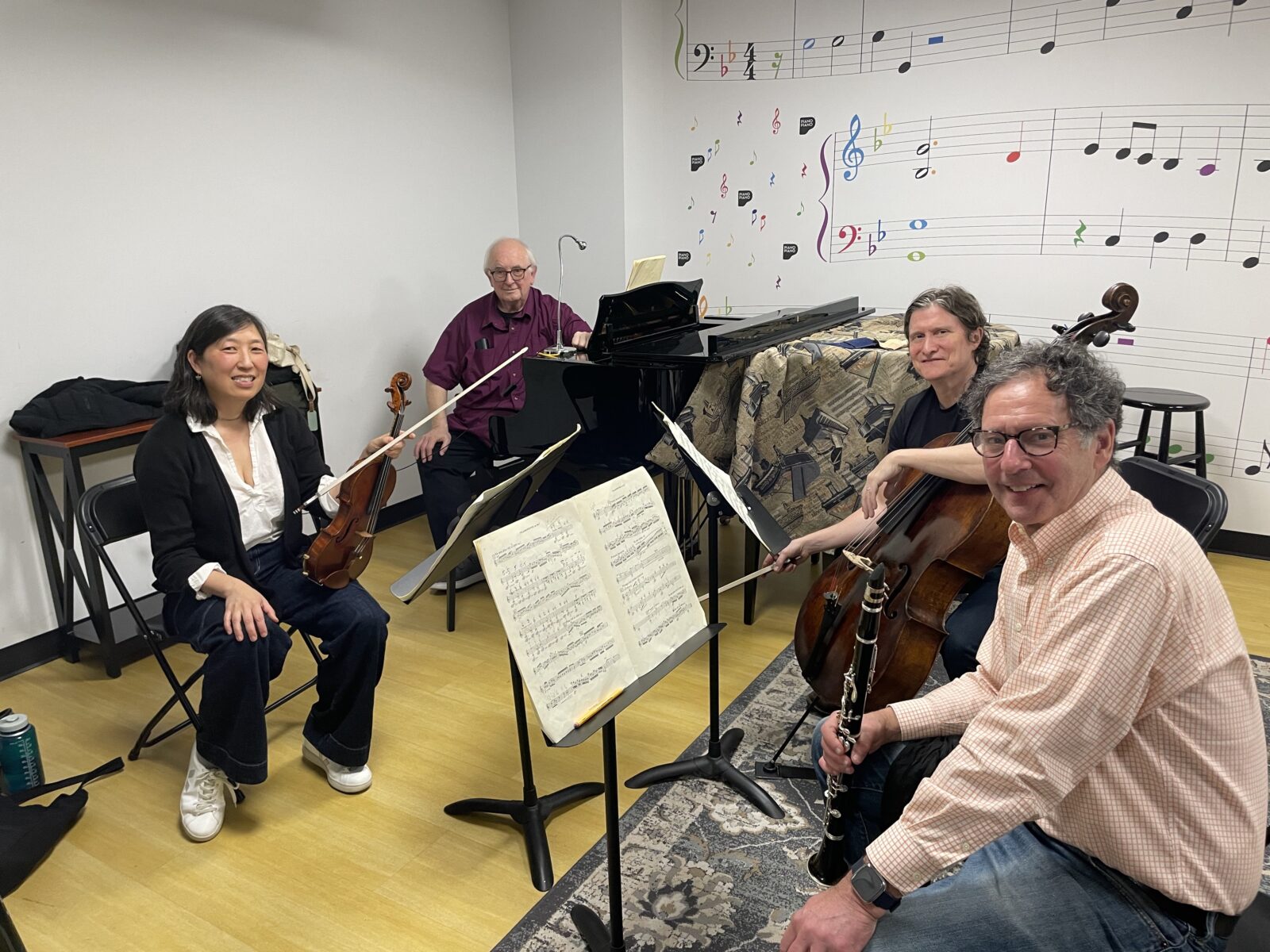
rehearsing the Quartet for the End of Time
Join ACMP this Sunday, April 7 for a live (and livestreamed) class with violinist and chamber music coach Calvin Wiersma on the first and sixth movements of Olivier Messiaen’s seminal work, the Quartet for the End of Time, with ACMP member musicians Yolanda Wu (violin), Kenneth Margolis (clarinet), Ben Pfeifer (cello) and Walter “Skip” Kennon (piano.)
Sunday, April 7, 3pm
Scholes Street Studio
375 Lorimer Street
Brooklyn, NY 11206
THE EVENT WILL ALSO BE LIVESTREAMED
LIVESTREAM LINK
FREE ADMISSION (voluntary donations are gratefully accepted – cash at the door or online.)
NO RESERVATIONS REQUIRED
In advance of this special event, I interviewed the four intrepid adult amateur musicians who took on this challenging piece. For the clarinetists, pianists, violinists and cellists among you, I hope you will be inspired to delve into Messiaen’s masterwork yourselves!
Interview with the Messiaen Musicians:
Yolanda Wu (violin), Ken Margolis (clarinet), Ben Pfeifer (cello) and Skip Kennon (piano)
Stephanie Griffin (ACMP): What inspired you to take on the project of learning Messiaen’s Quartet for the End of Time?
Ken: I first heard the work back in college and was immediately taken by its mystical qualities, the haunting verses of Revelation 10 describing the angel of the Apocalypse that inspired Messiaen (“the angel who raised his hand toward the sky and declared ‘there shall be time no longer’ ’’), and the unique circumstances (a German POW camp) in which it was composed and first performed. I have had a desire ever since to play it some day and now, 50 years later, thanks to ACMP connections, it happened!
Skip: I, too, heard it for the first time in college and was blown away by its highly chromatic harmonic language, sometimes feeling atonal, others ear-twistingly tonal. The rhythms in some movements are tremendously complex and very difficult to co-ordinate with each other. Some movement, the piano accompaniment is solemnly hypnotic with its rhythmic ostinatos.
Yolanda: I had heard of this piece but didn’t know it beyond having the vague impression that it is serious and difficult music. When Ken asked me to work on it, I was excited to take on a challenge and said yes immediately. It’s been such a worthwhile experience! Although my family wonders when they will no longer be subjected to hearing the piece with a loud clarinet playing one note. 😉
Ben: I was lucky enough to get roped into this project thanks to Yolanda!
Stephanie: Is this your first time tackling this work? If not – what were your prior experiences?
Skip: It is my first time. It is definitely not sight reading material! With complex chromatic harmonic cluster accompaniments and those ever changing rhythms, it is a musically difficult piece for the piano, actually for everyone. But technically for me, it is not so frightening most of the time.
Ken: My first time playing it, but I have heard some memorial live performances over the years, including by Tashi in 1974 and the Israeli Chamber Project in 2021.
Stephanie: What are some of the challenges this piece presents that differ from other chamber pieces you have played?
Yolanda: The rhythms in this piece are very challenging. You can’t count in regular meter so we are often subdividing in our heads with running sixteenth notes. Also, the instrumentation is unusual and there are challenges to sounding as one with piano, clarinet, cello and violin.
Ken: There are many, but most notably the rhythms. Some movements lack time signatures, perhaps suggestive of the theme of timeliness.
Ben: Prior to learning the piece and seeing the score, I had wrongly assumed that I was hearing interpretive decisions in the recordings I listened to. Some of it sounds downright free and ethereal. But this effect is actually a product of Messiaen’s unrelenting mathematical precision.
Stephanie: Are there any other chamber pieces you have studied or performed that prepared you well for some of the challenges of the Quartet for the End of Time?
Skip: I played Bartók’s Contrasts and some of his solo piano pieces. Some of Bartók’s complex rhythms and modal melodic writing seem present here, except this time often without time signatures.
Stephanie: What are the rewards you gain from delving into this piece that differ from other chamber pieces you played?
Ben: We are lucky as chamber musicians to have hundreds of years of repertoire to choose from. Studying and playing a modern composition like this gives you a perspective on all the music written before it in a visceral sense. It’s one thing to listen to or read about a challenging modern piece of music – it’s quite another to get it under your fingers.
Skip: Playing beautiful, exotic, exciting, spiritual and moving music that really is like no other composer’s work..
Stephanie: What are some of the most interesting things you learned while working on the Quartet for the End of Time that you can apply to your playing of other chamber pieces?
Yolanda: Putting this piece together is not all that different from other chamber pieces. As with all chamber pieces, listening to each other is really important for intonation and blending sound. And it’s good to study the score so that you know what everyone is doing (e.g. in the first movement when everyone is doing their own thing rhythmically but at moments someone else plays with you or has an important counter rhythm). In the unison movement (Dance of the Fury for the Seven Trumpets), it’s really important to have a leader and for everyone to share an internal pulse. We’ve had discussions about how to subdivide longer held notes and also have worked out groupings within sixteenth note passages so that they “make sense” and can be played better in unison.
Ben: It takes time for a clarinet to produce sound compared to a stringed instrument. The same is true comparing strings to the piano. Asking for strict rhythmic precision from an ensemble with all three is complicated. Learning this piece I found myself relying on visual cues even more than usual to stay together.
Stephanie: Why did you choose to work on the first and sixth movements for the class on April 7?
Ken: Only four of the eight movements are scored for all four instruments. The sixth movement, with the four instruments playing mostly in unison, with retrograde rhythms and dynamic ranges from pp to ffff, lives up to its title – Dance of Fury for the Seven Trumpets – and is in my view a highlight of the piece.
Skip: I was disappointed that we didn’t work on the other movements. The cello with piano sections are gorgeous long-lined beautiful melodies stretched over severely controlled piano ostinati. The very last movement, which is for violin and piano, is a gorgeous inexorable ascent to the heavens achieving musical ecstasy. Alas, for the piano, there is not much melodic material to play in the whole work. Messiaen took on the role of accompanist for three expert musicians.
Yolanda: It was really a question of logistics that we chose to work on two movements that we all play. Some of the most beautiful movements are scored for only two instruments. We just need more time to work on them!
Stephanie: Do you have any advice to offer other ACMP clarinetists, violinists, cellists or pianists who might be interested in learning this piece themselves?
Ken: Set aside enormous individual practice and rehearsal time and acquire a good metronome app.
Skip: The pianist should have a substantial reach. The massive (often delicate) chords lose their crystal character when you have to roll them (quickly arpeggiate them.) The solo clarinet movements require enormous breath control and a wide dynamic range without ever sounding like you’re forcing. All three instruments (not the piano) have tremendous intonation challenges. Luckily for me I don’t have to worry about that. As our coach, Cal, said, “The piano is always right.”
Ben: While it’s generally true in chamber music that you have to know each part to understand how you fit in, this piece absolutely demands it. I’d also say you’re going to need quite a bit of time to learn your part as initially just about every note feels unexpected. Oh and cellists should be prepared for a full embrace of false harmonics.
Yolanda: Learn your part well, listen to the piece, study the score, and you will be rewarded with a rich experience!
More Articles
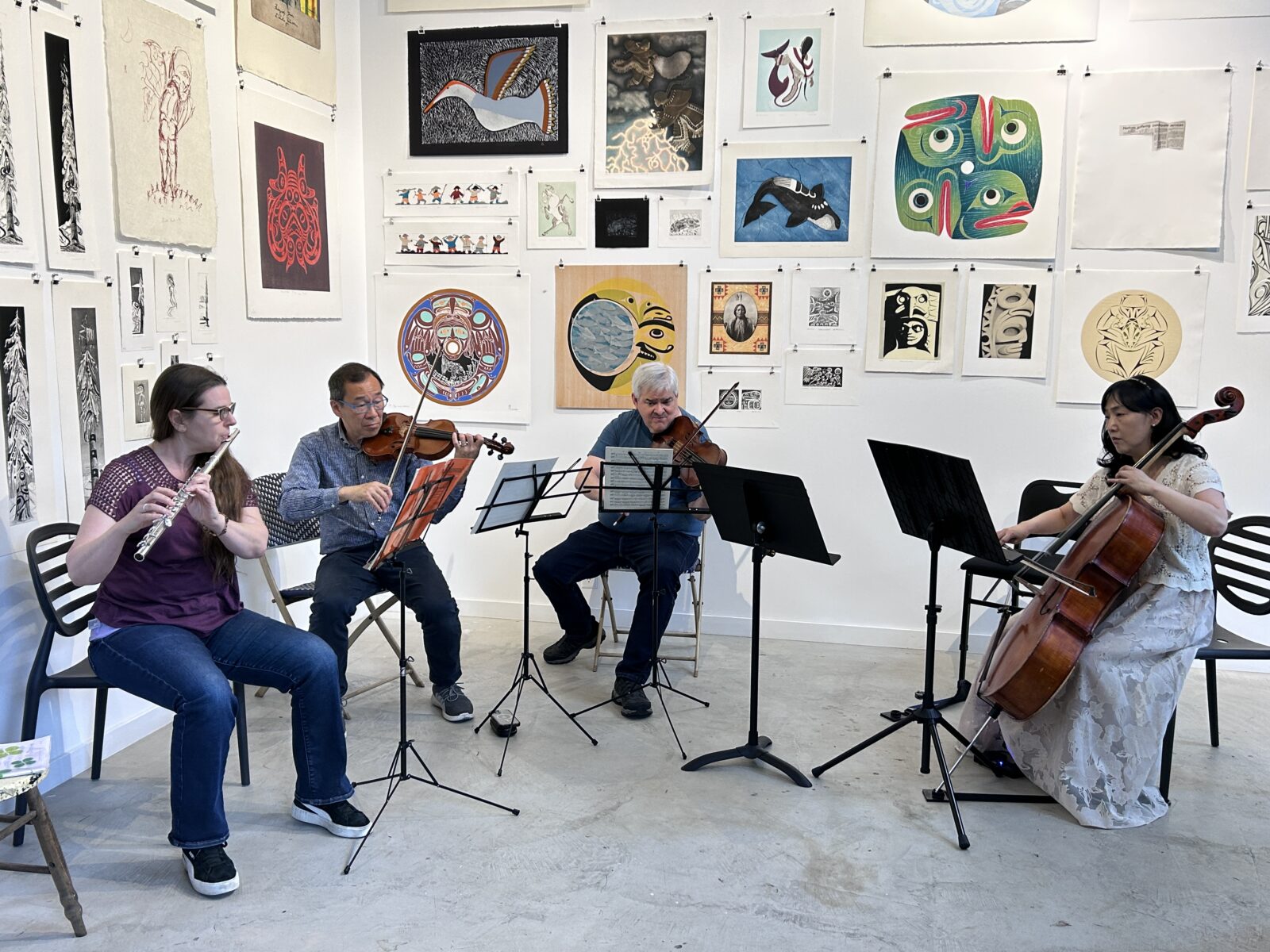
And the Play-Ins continued in June!
With ACMP's rapidly growing community of chamber musicians, Play-In season is never over! Read about two recent Play-Ins in June.Read More ↗
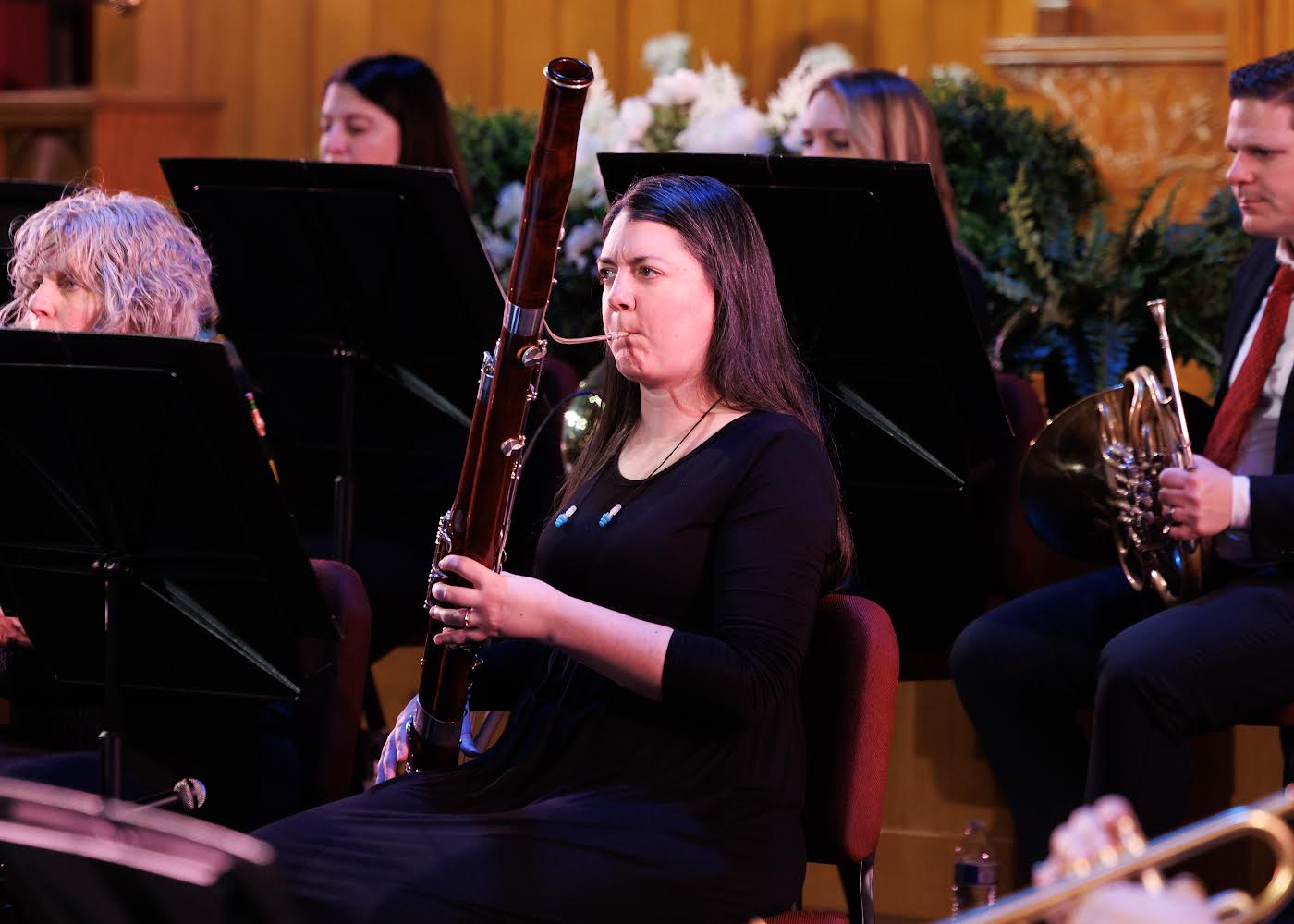
2025 News of Note Puzzle Contest Winner and Answers
Congratulations to bassoonist Jessi Vandagriff for winning this year's News of Note puzzle contest. And read more for the great puzzle answer reveal!Read More ↗
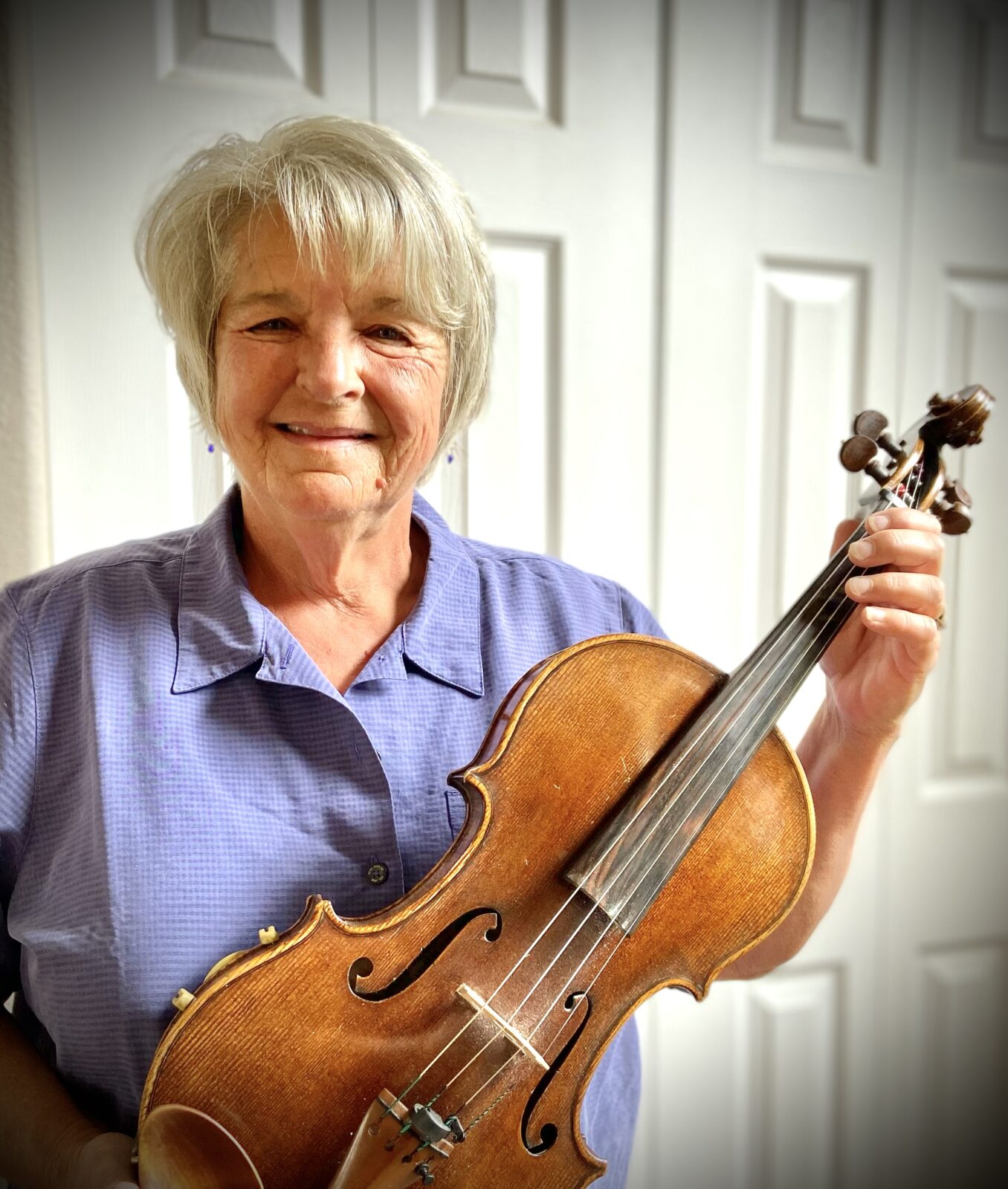
Member of the Month, July 2025: Cheryl Hite
The ranks of ACMP members are filled with professionals who began their college careers with the intent of pursuing music for a living, then for whatever reason moved into another career. Colorado-based violist Cheryl Hite is one of those musicians. A native of Detroit, she enrolled at Indiana University in the 1970s as a double major – biology and viola performance. Read her interview with ACMP Board Chair Bob Goetz.Read More ↗
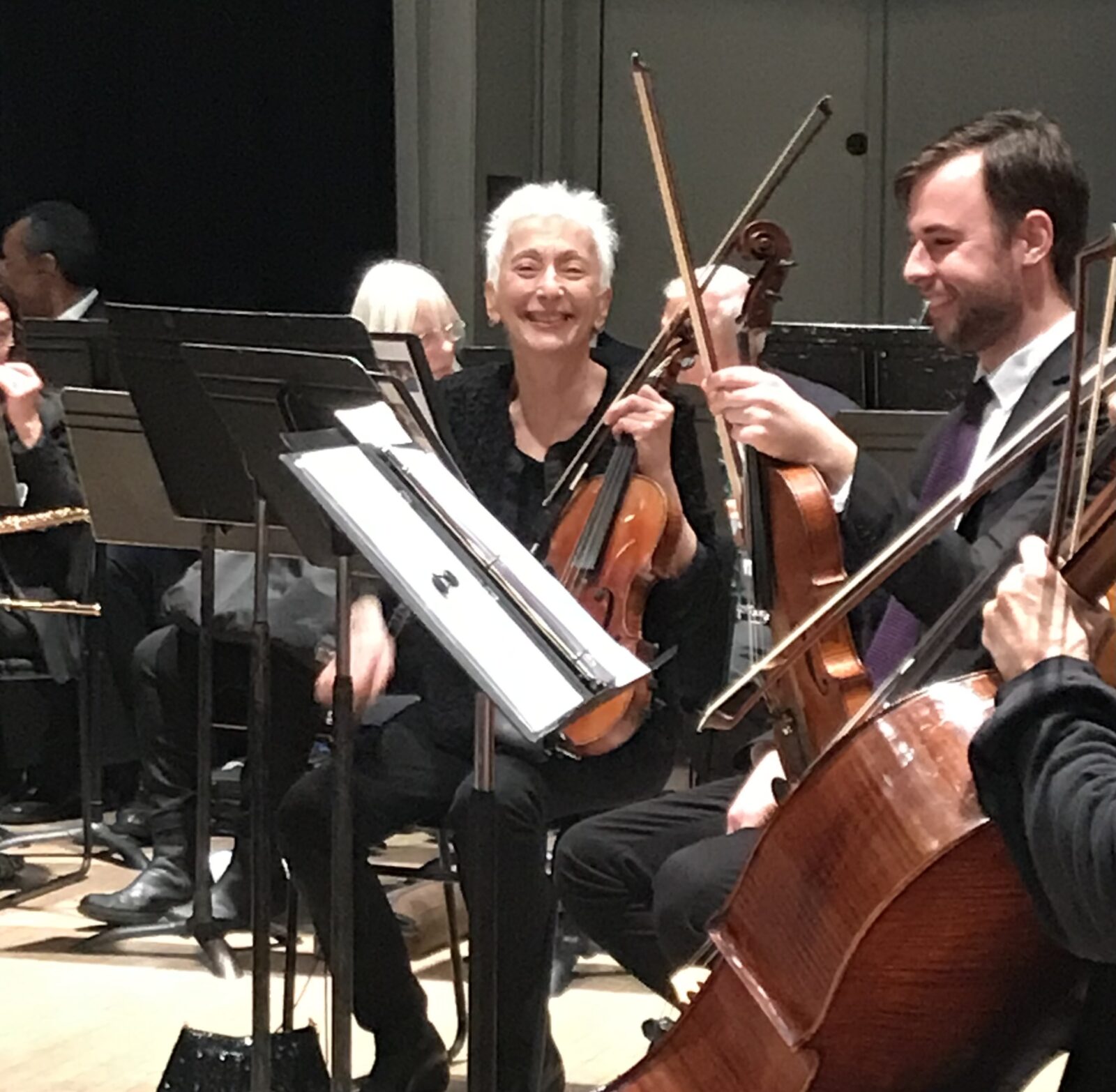
The day my quartet played out of tune and almost got our host evicted
Chamber music can be a high stakes activity - play a bit out of tune, and your host could end up on the street. Read about one such close call in New York City.Read More ↗
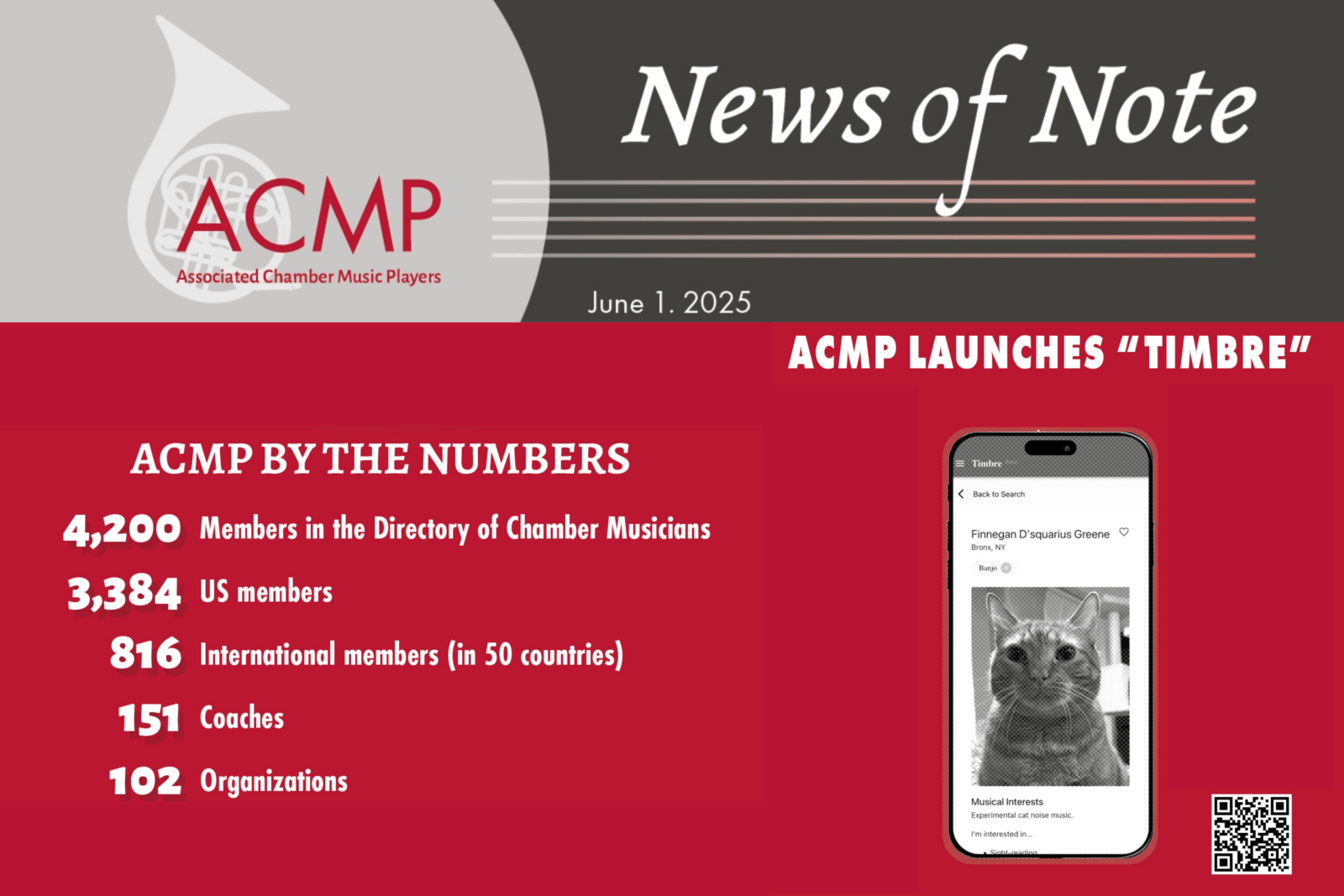
News of Note 2025
It’s that time of year again! The web version of the 2025 News of Note is live, featuring updates from the past year—and some fun extras, including everyone’s favorite: a new puzzle. (Submit your answers by July 1!)Read More ↗
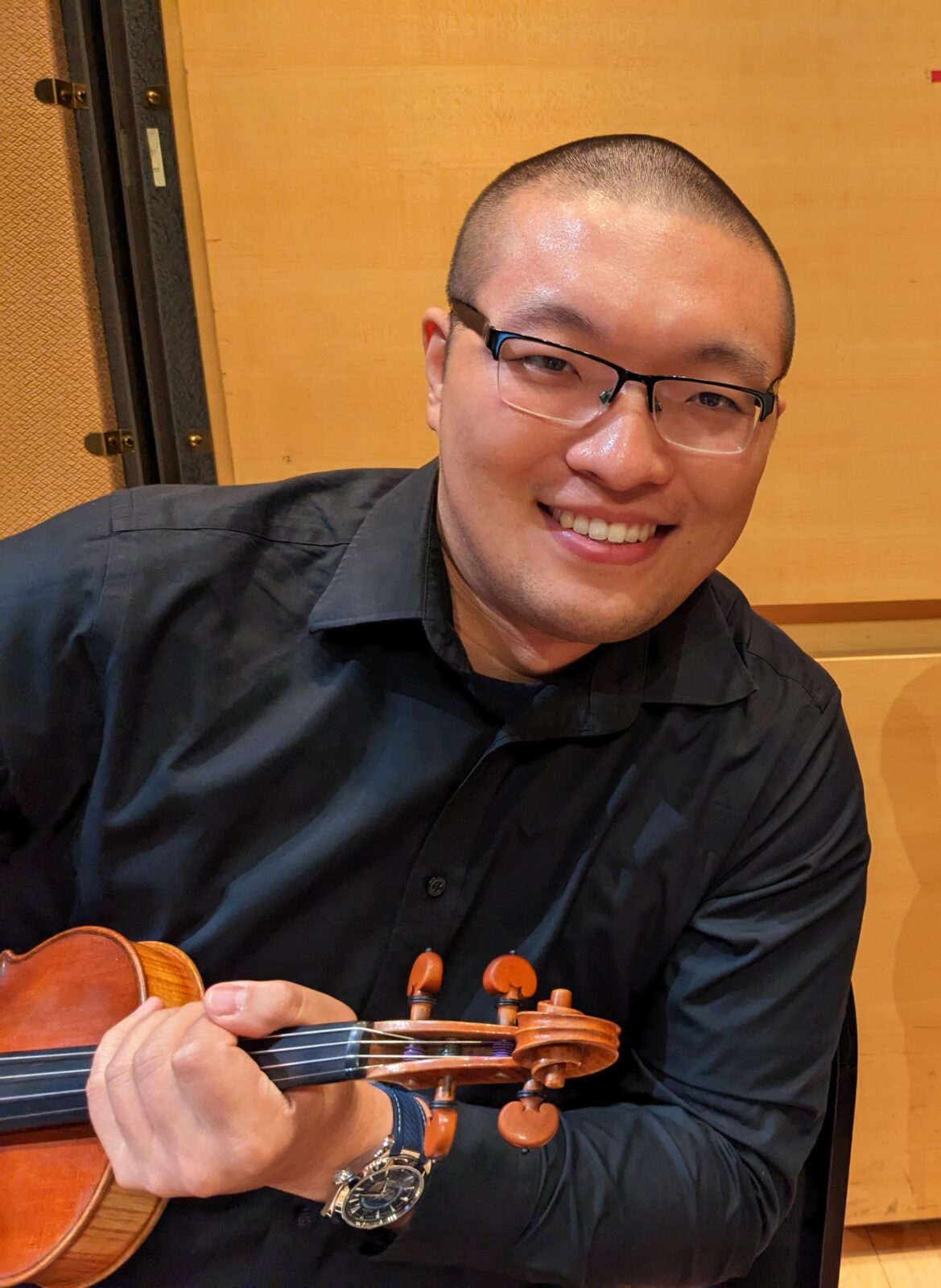
Member of the Month, June 2025: Frank Song
Frank Song, 28, may work remotely as a software engineer, but when it comes to music and the arts, he is all about being there, in person. With the flexibility to travel in his work, he seeks out concerts or museum exhibits in cities far beyond his home in Toronto. And while he’s at it, he takes along his violin to play chamber music. We caught up with Frank on a recent visit to New York, where he played chamber music with people he found through ACMP.Read More ↗

Seasoning for the Seasons
With a taste for adventure and a pinch of whimsy, follow ACMP cellist Tom Cappaert’s lead: stage a chamber concert in a Quito pizza parlor.Read More ↗
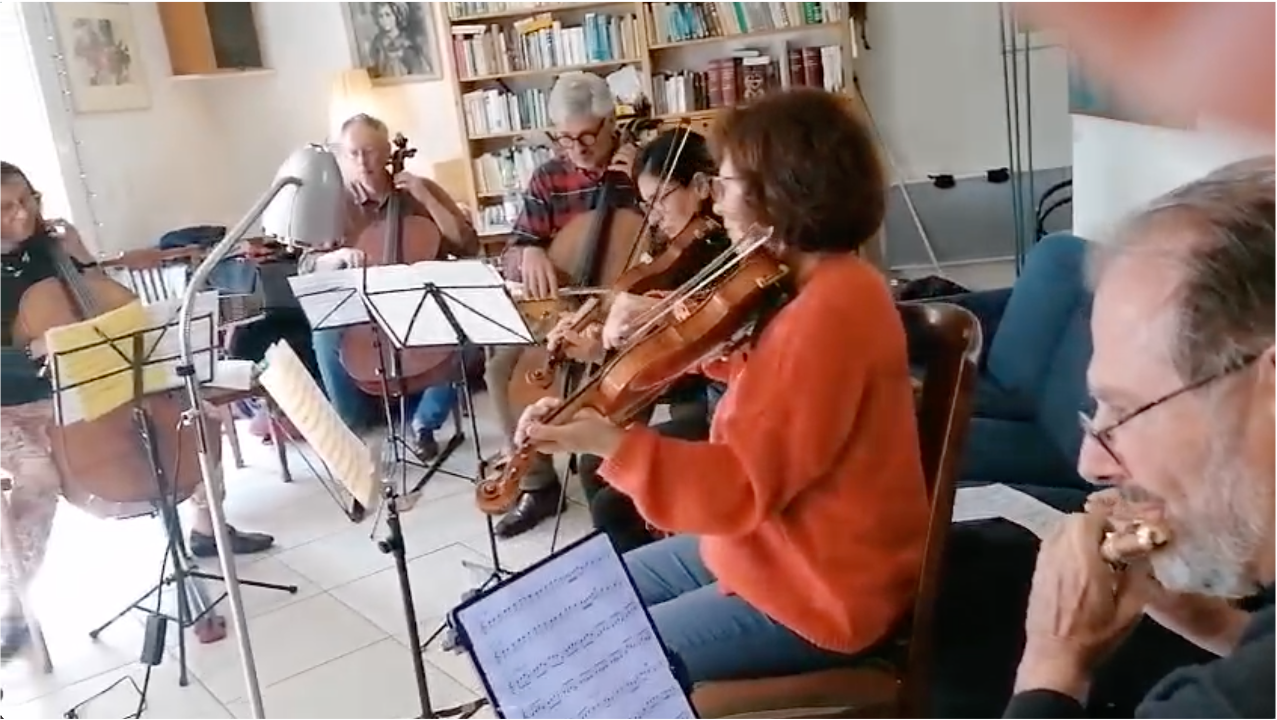
May 2025 Play-In Highlights!
Highlights from just a few Play-Ins during National Chamber Music Month!Read More ↗
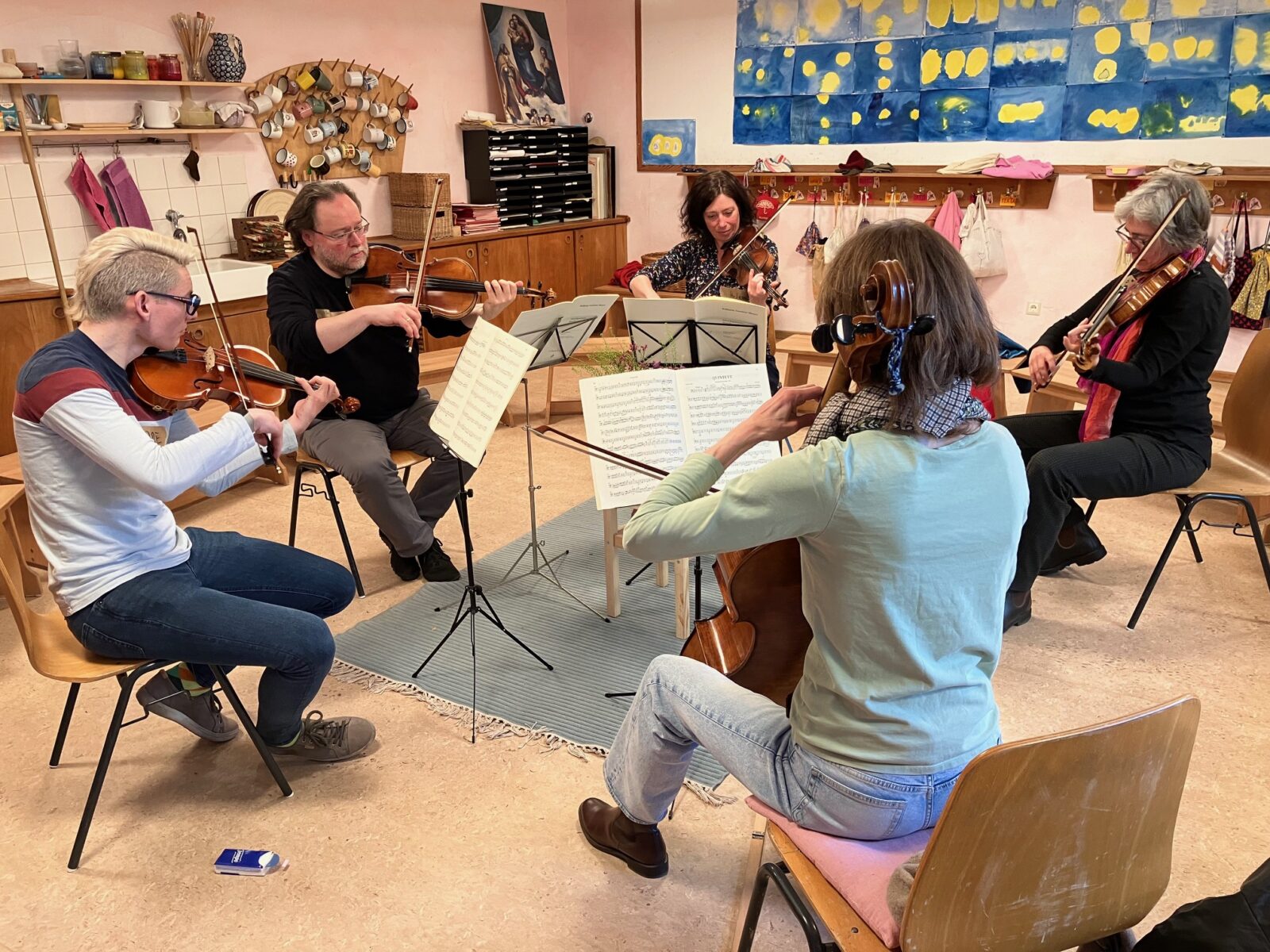
Play-In Report: Berlin Kammermusik Liste
Michael Knoch runs the Berlin Kammermusik Liste, and represents ACMP as its International Ambassador in Germany. He holds at least two Play-Ins a year, and has a unique gift for organizing large Play-Ins with a mix of all instruments and voice. Read about his second Play-In of 2025!Read More ↗
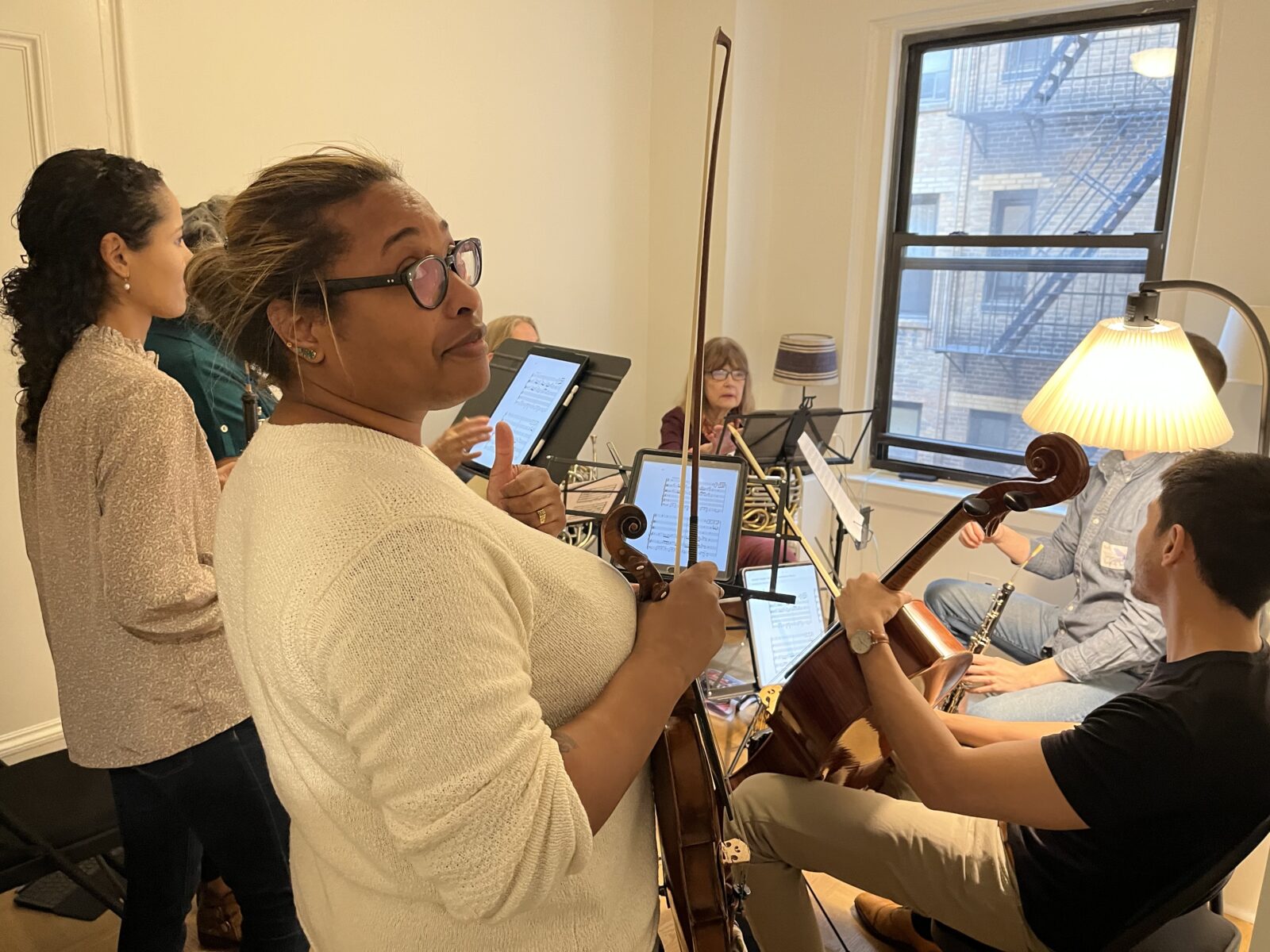
2025 Worldwide Play-In Events
May is Chamber Music Month! Celebrate with Play-Ins all month long, and during the Worldwide Play-In Weekend: May 16-18, 2025. See this list of Play-Ins in the ACMP Directory to date, and keep checking it for updates.Read More ↗
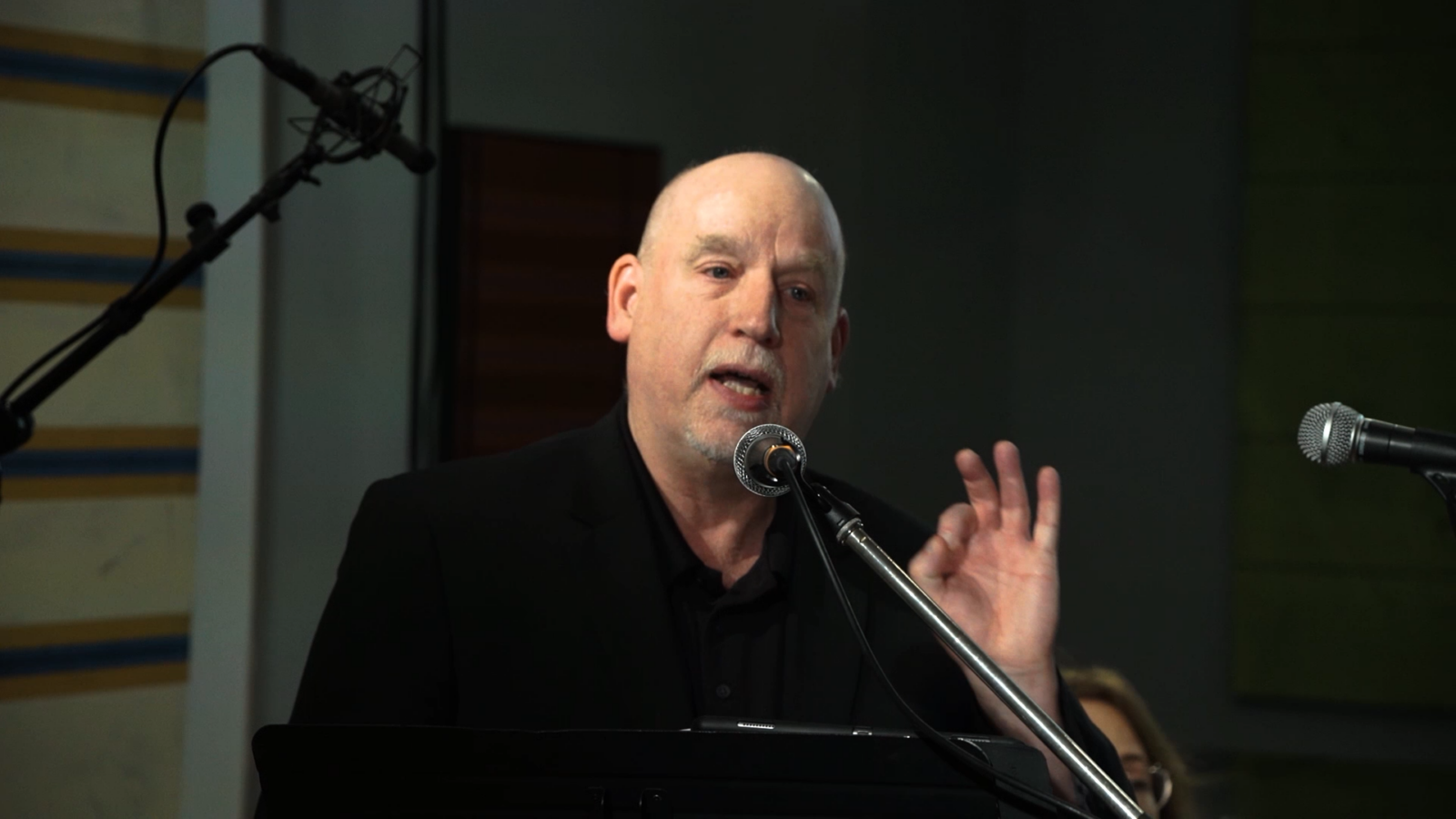
New Video: Ravel’s String Quartet with Cal!
Cal Wiersma is back, sharing ensemble tips and tricks through the lens of Ravel’s String Quartet.Read More ↗
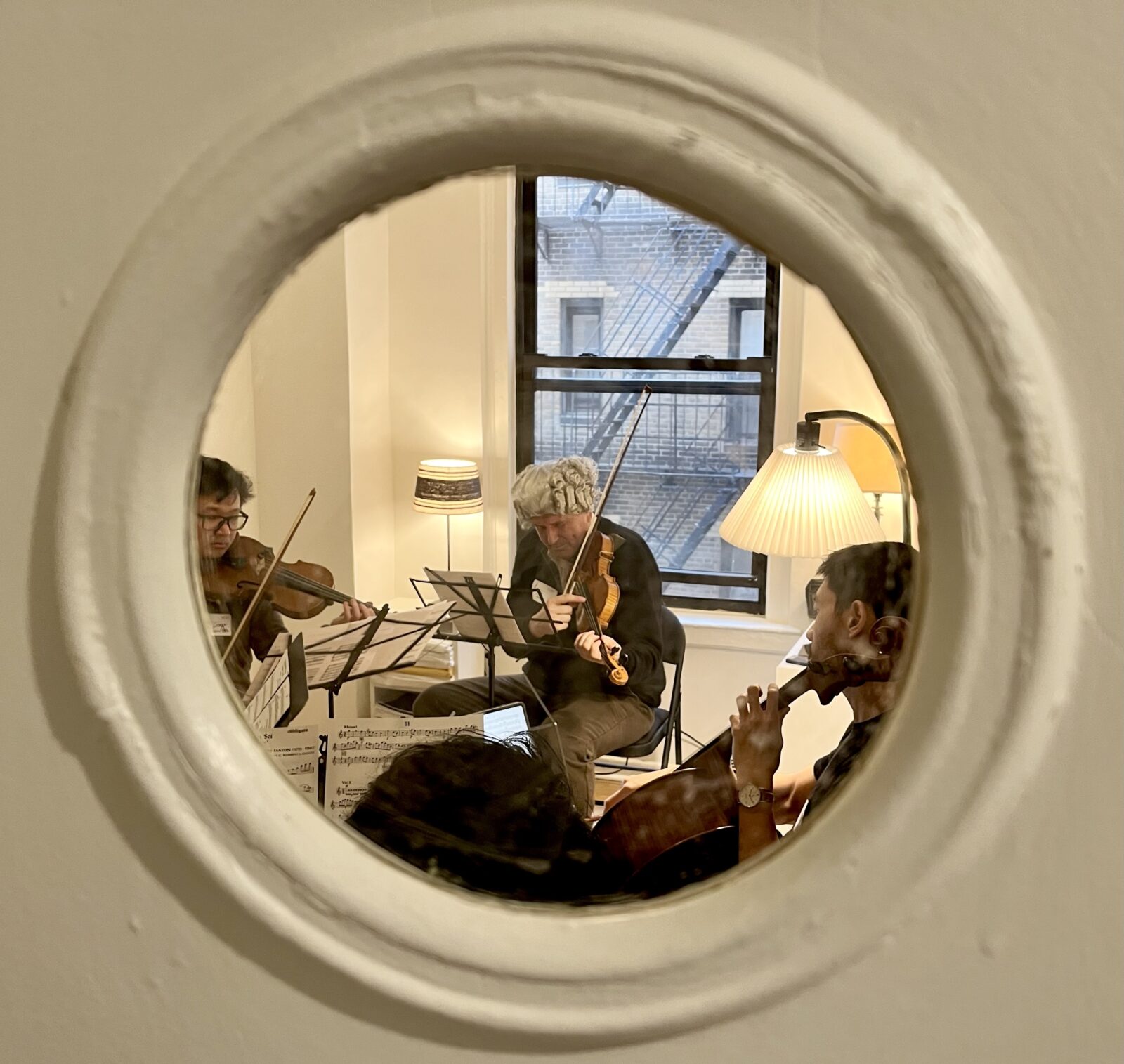
Here’s looking at you, Joe!
One day before Haydn's 293rd birthday - a Haydn party happened in Manhattan. Haydn himself appeared (in the form of ACMP violinist, board member and host, Bob Goetz.) 30 players participated - one third of the participants were wind and brass players! Read about the party and get some fun repertoire ideas!Read More ↗
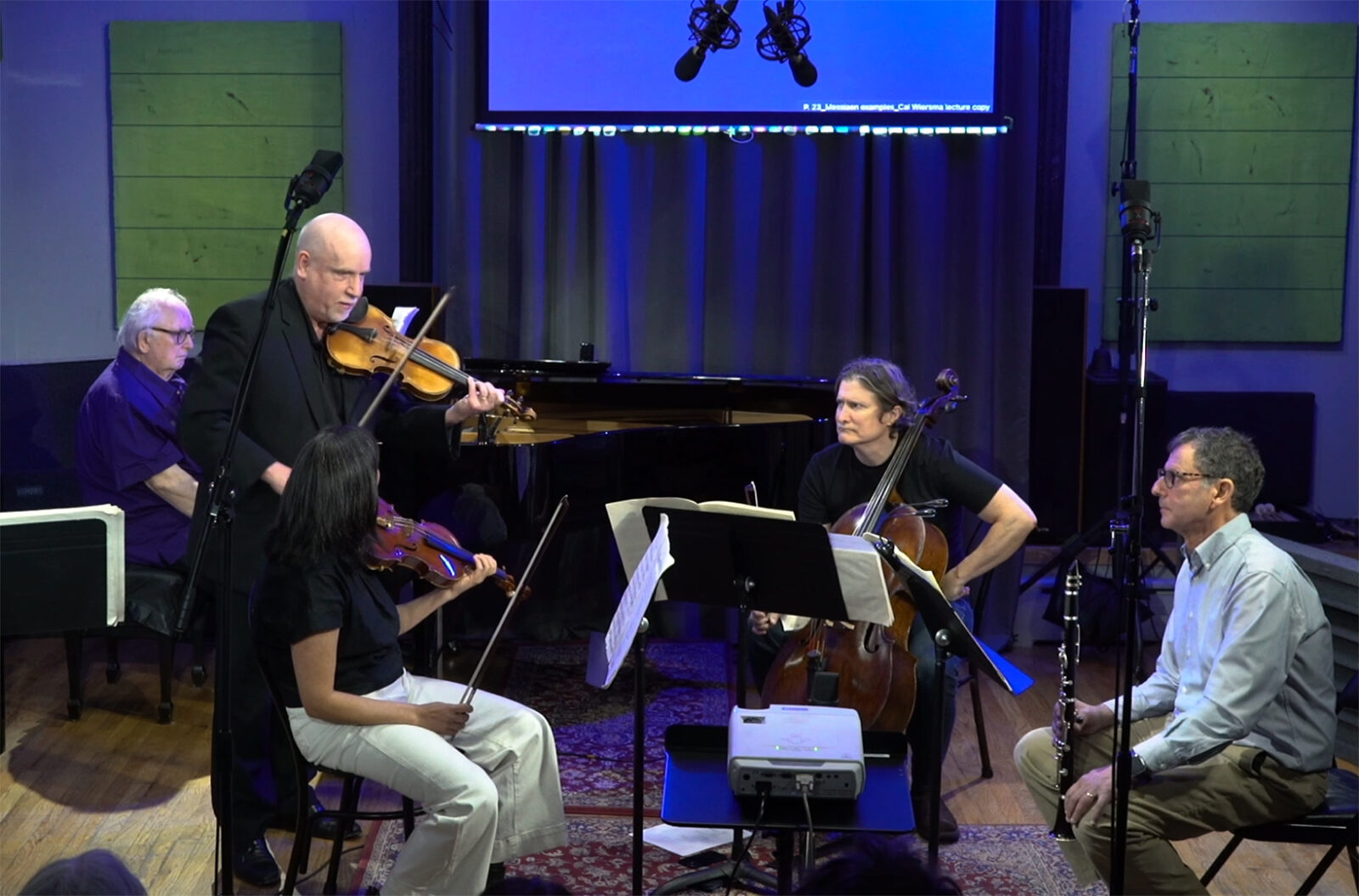
Cal Wiersma Class: Rehearsal Techniques in Ravel’s String Quartet
Back by popular demand - ACMP is offering another live and live-streamed class with violinist and chamber music coach Cal Wiersma on chamber music rehearsal techniques in Ravel's String Quartet on Sunday, April 6 at 3pm ET.Read More ↗
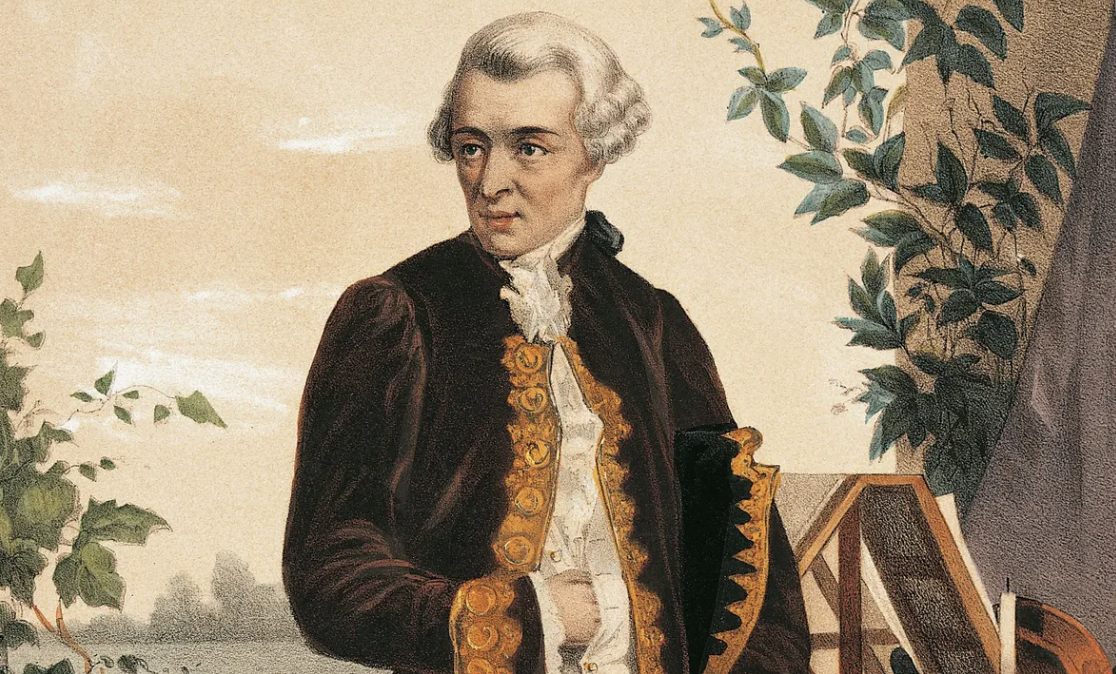
The 2025 ACMP Haydn Challenge
March 31 is Joseph Haydn’s birthday! It’s also a fabulous occasion to celebrate his contributions to the world of chamber music with a gift in his honor to ACMP…Throughout the month of March, we hope you will participate in the ACMP Haydn Challenge.Read More ↗
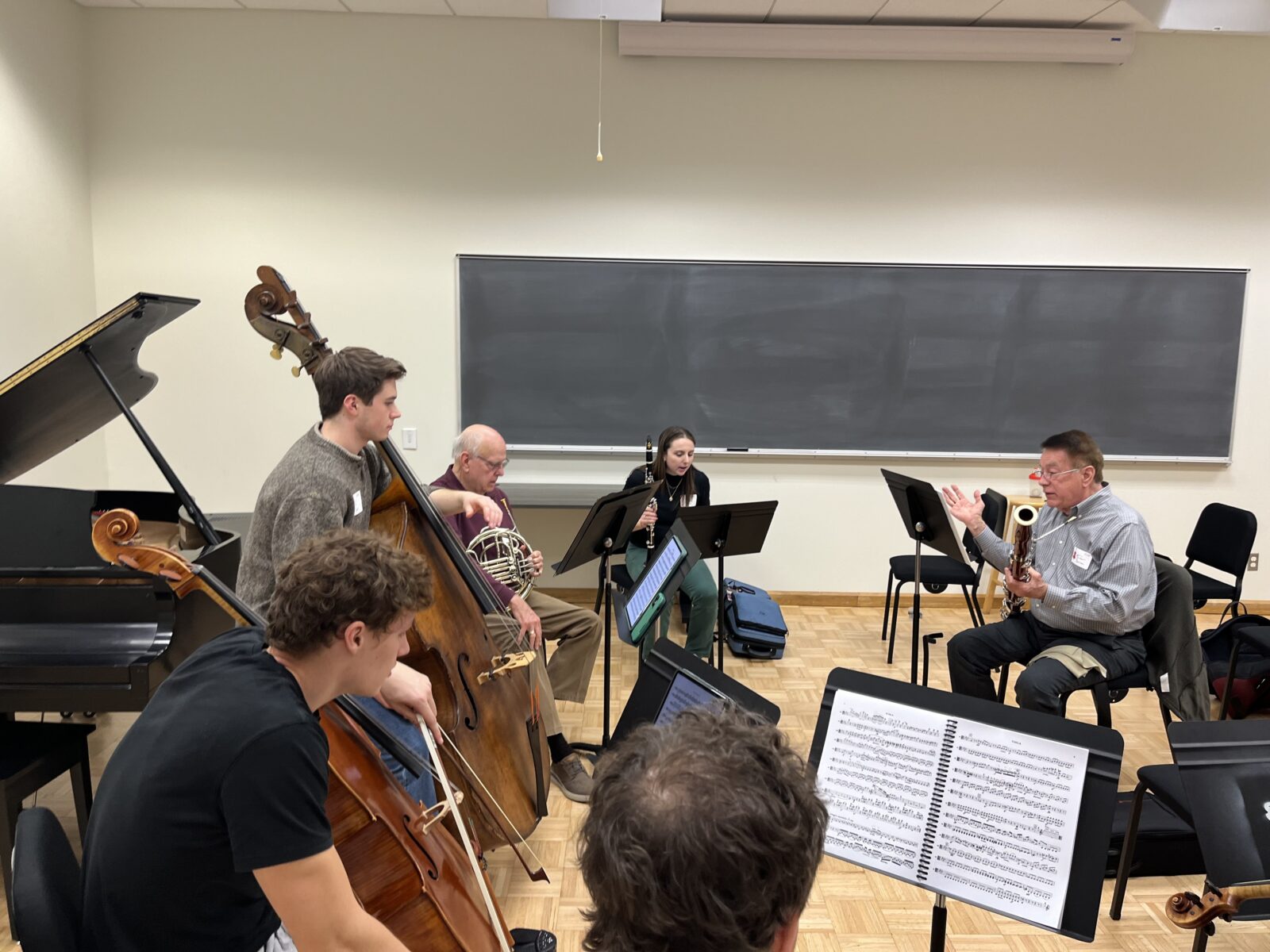
Post-CMA Conference Recap 2025
The CMA Conference in Houston—four days of nonstop music, inspiring connections, a jam-packed ACMP Play-In and a surprise woodwind trio at the Menil Collection!Read More ↗
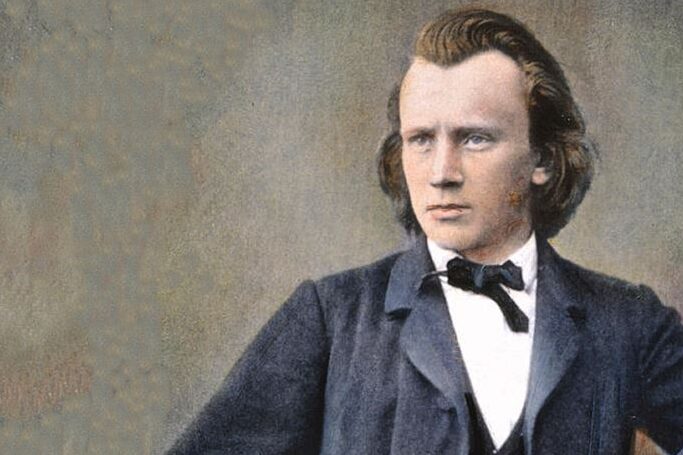
New Listening Club Video: Exploring Brahms Piano Quintet in f minor, Op. 34
Out now! Watch the video recording from our recent Listening Club event with Peter Fender returning and going through Brahms’ Piano Quintet in F minor, Op. 34—an arrangement of an arrangement.Read More ↗
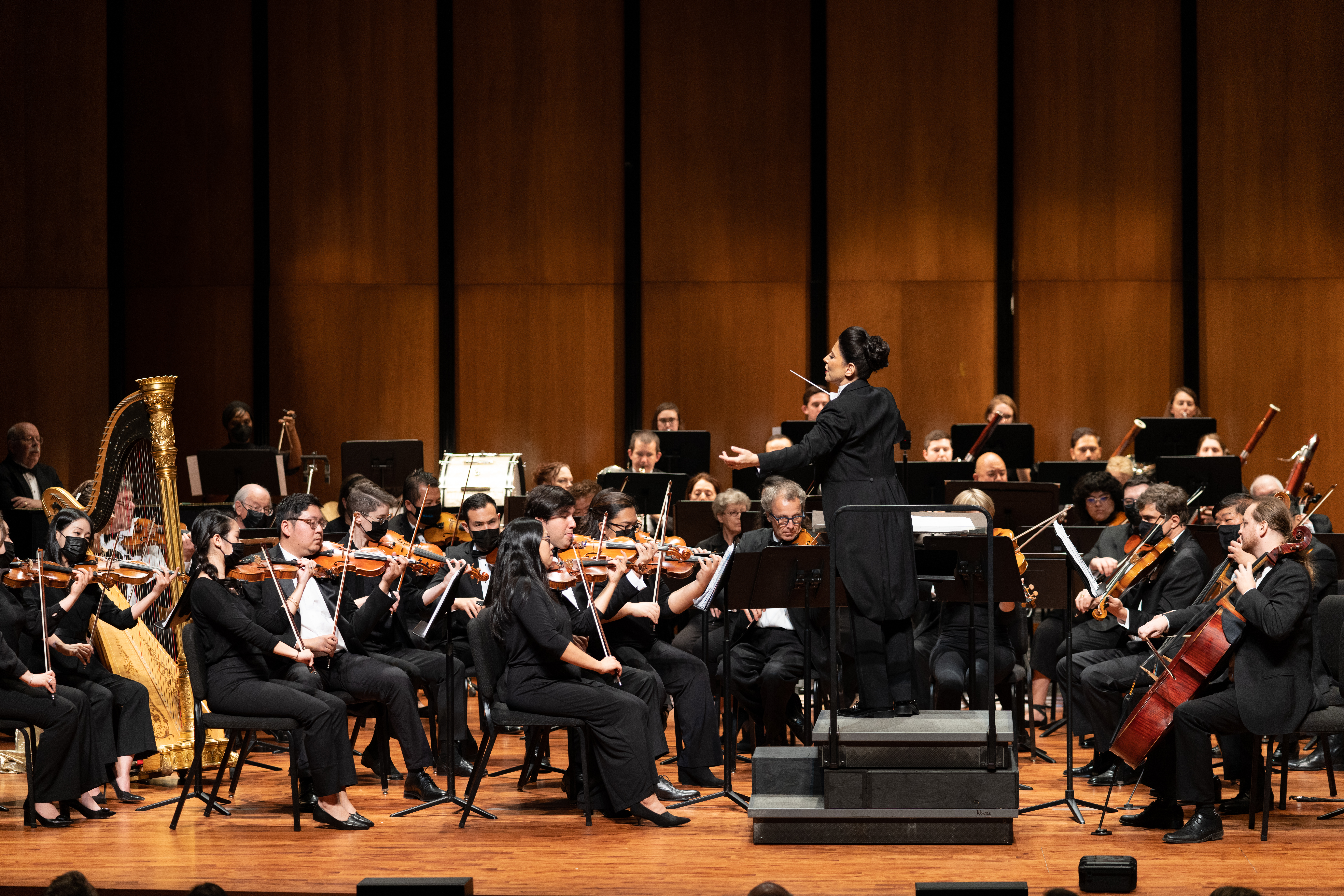
An orchestra born out of one woman’s dream
Over the course of its 25 years, the Texas Medical Center Orchestra has earned national acclaim in becoming a fixture of the Houston musical community. But how it got to this point can be traced to the vision of one woman—Libi Lebel, who moved to the Houston area in the late 1990s as an aspiring conductor and simply wanted to find a group to lead.Read More ↗

And it’s launched! The new Timbre web app
Just in time for Valentine's Day, ACMP is launching its new Timbre web app. Here's how to find it - and some handy tips on how to use it, too.Read More ↗
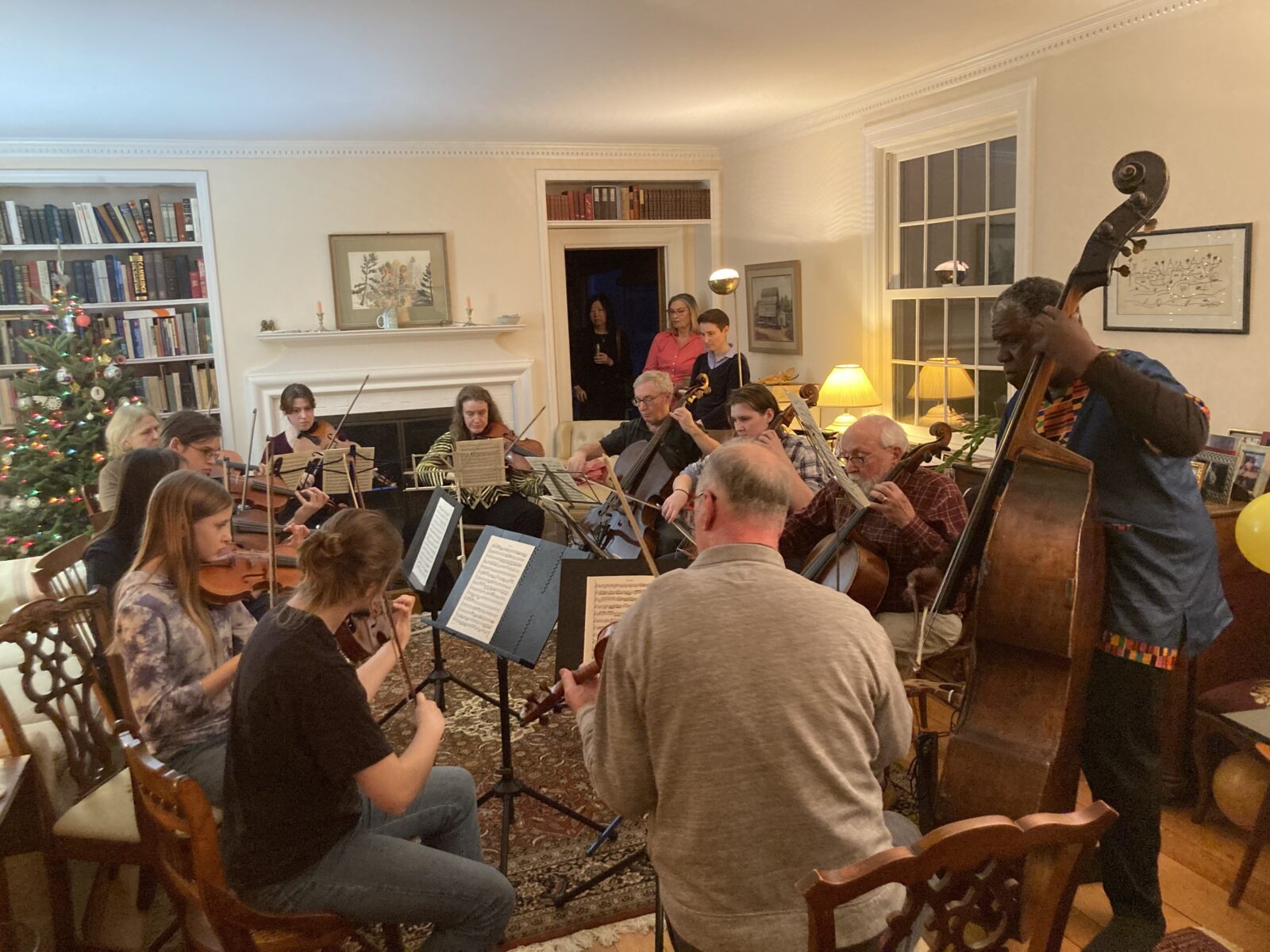
Celebrating the holidays with chamber music!
Looking back on a festive holiday season,ACMP was especially inspired this year by how many of our members made music together in their homes as part of their celebrations. ACMP Executive Director Stephanie Griffin attended two of these, and a special jazz party on New Year's Day.Read More ↗
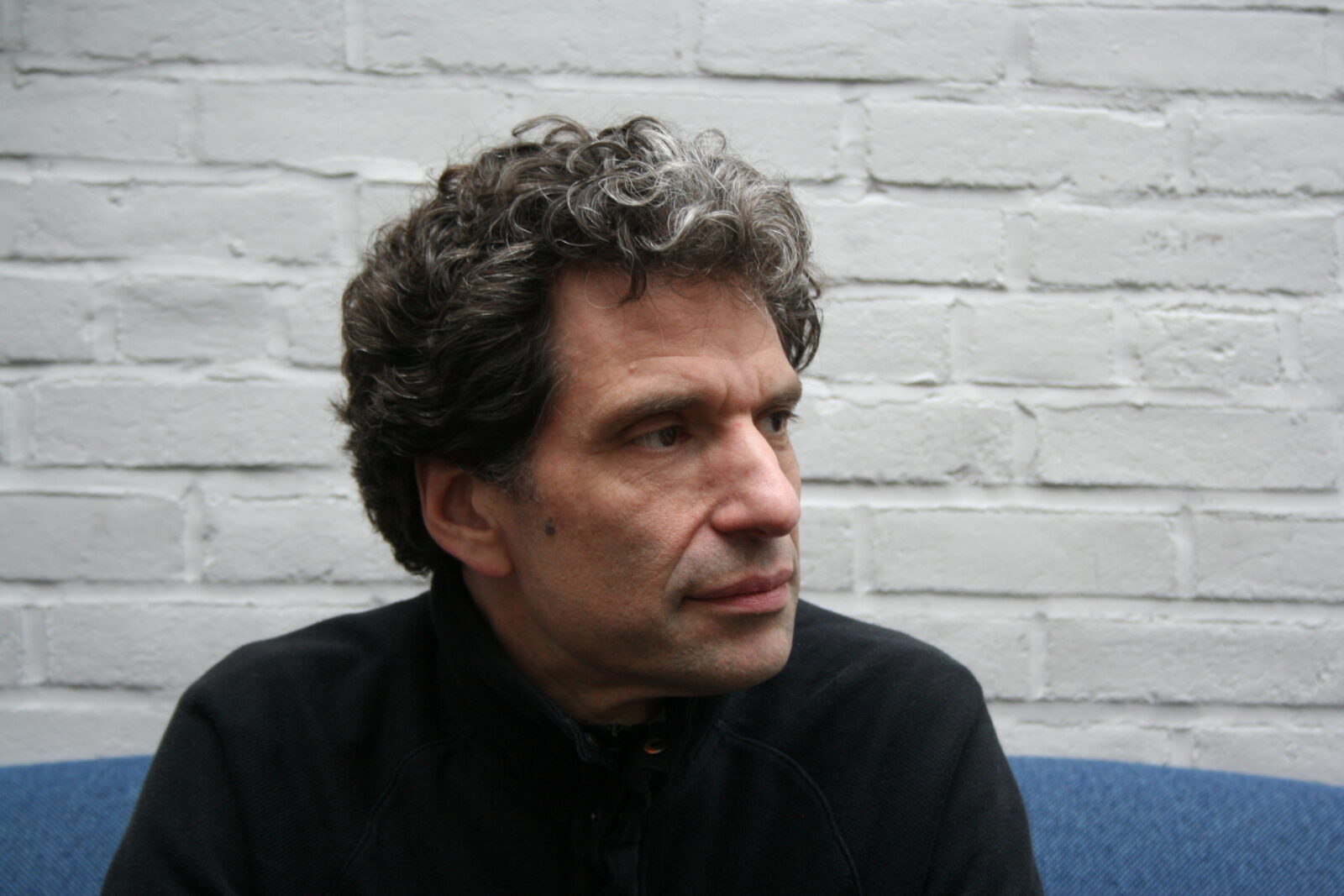
ACMP member discount on Seth Knopp’s new course “Music Speaks”
Join pianist and Yellow Barn Artistic Director Seth Knopp in New York City for a unique new music appreciation course "Music Speaks" on February 22 and 23 and March 1 and 2. And enjoy a 20% discount as a member of ACMP!Read More ↗